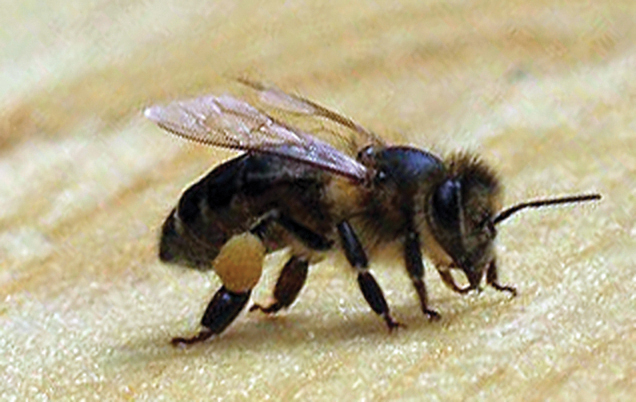
Bumblebees and honeybees have many things in common. They are both yellow and black. They both collect nectar and pollen and pollinate flowers. And, of course, both species can sting. But this is where the similarities end.
Honeybees
Honeybees often make their hives in hollow trees. Their hives consist of neat honeycombs and house thousands of bees. Honeybees survive through the winter by staying in their hives and bunching together to keep warm.
Honeybees work between 3–12 hours per day and produce far more honey than they can use. They make enough for humans to harvest the honey without harming the hive.
Honeybees usually only sting when threatened. But they can only sting once because they die afterward.
Bumblebees
Bumblebees look like big, fuzzy honeybees. They make their hives in the homes of other animals. The queen searches for underground burrows made by small animals or for birdhouses. Queens are fierce and will chase much larger animals from their homes.
Only queen bumblebees live through the winter. The other bumblebees in a hive will die off come wintertime. The queen bumblebee hibernates through the winter. She emerges from her burrow in early spring. Her fuzzy coat keeps her warmer than honeybees. She can work in much cooler temperatures than honeybees.
Once the queen finds a good spot, she makes herself at home. She builds special pots out of wax, lays several eggs in each one, and then seals them up. She lays about 50 workers at the start of the season. Then she gets to work on her honeypots, making sure that there’s enough honey for her workers to eat once they hatch.
Bumblebee hives look very different from honeybee hives. Bumblebees do not make honeycombs with six-sided cells. They make little pots out of wax instead. Bumblebee hives are much smaller than honeybee hives, housing up to about 500 bees at a time.
Bumblebees are the busiest bees and work up to 18 hours per day. Greenhouse farmers prefer to keep bumblebees for this reason. Greenhouse farmers grow fruits or vegetables inside greenhouses. Tomato farmers prefer bumblebees because of their bumble and buzz. The pollen on tomato flowers is very hard to remove. Honeybees can’t do it. But bumblebees know just how to vibrate and buzz to get the pollen to fall off. This means that more tomato plants are getting pollinated. It also means that more tomatoes will grow.
Bumblebee stingers do not have a barb. They do not get stuck in your skin. Bumblebees can sting again and again. Like honeybees, they really don’t sting unless they are under attack.



 About BeeLine
About BeeLine